The Australian and New Zealand Army Corps (ANZAC) was raised during World War I to do battle against all the King’s enemies. It first saw action and mass casualties in the ill-fated Gallipoli Campaign that unfolded in what is now Turkey.
Some 16,000 ANZACs came ashore on 25 April, 2015, meeting fierce resistance from the Ottoman Army commanded by Mustafa Kemal (later known as Atatürk).
Now that day is remembered by the two countries as ANZAC Day with a public holiday, massed marches of past and serving military personnel and events to remember the dead of all wars since.
Dawn services begin events in recognition of the very moment the ANZAC forces went into battle.
“On this particular day, as we honour those who fought for our liberty and freedom, we stand with the people of Ukraine who do the same thing at this very moment,” Prime Minister Scott Morrison said as the sun rose Monday morning over the Northern Territory capital of Darwin at the top end of Australia.
“Coercion travels our region once more,” he added, in an allusion to China’s growing political and military sway in the Indo/Pacific, AFP reports.
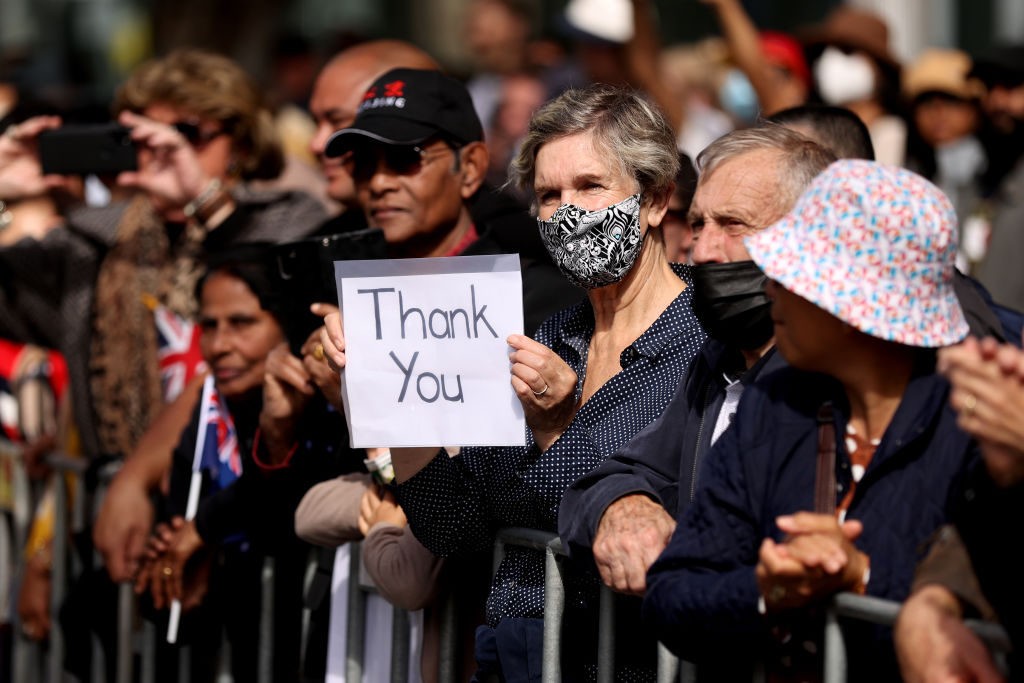
A member of the public holds a ‘thank you’ sign during the ANZAC Day parade on April 25, 2022 in Sydney, Australia. (Brendon Thorne/Getty Images)
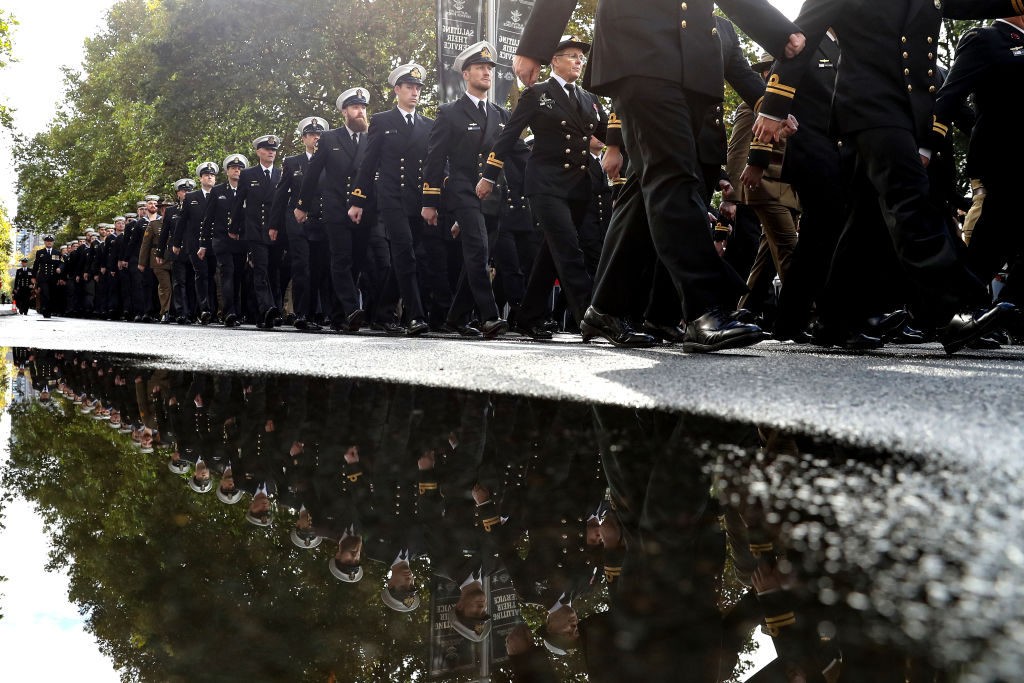
War veterans, defence personnel and war widows make their way down Elizabeth Street during the ANZAC Day parade on April 25, 2022 in Sydney, Australia. (Brendon Thorne/Getty Images)
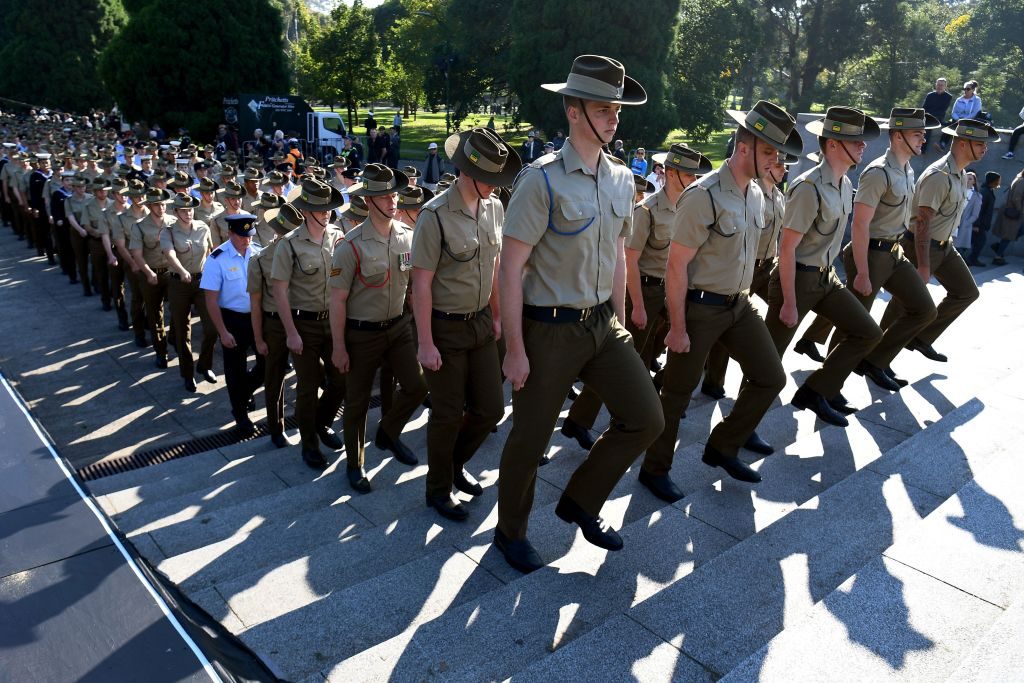
Defence personnel march to the Shrine of Remembrance to honour soldiers who have died in the line of duty, on ANZAC Day in Melbourne on April 25, 2022. (WILLIAM WEST/AFP via Getty Images)
In New Zealand, Prime Minister Jacinda Ardern said the Russian invasion of Ukraine made Anzac Day especially poignant.
“Fresh in all our minds is the invasion of Ukraine, a most grim reminder of the fragile nature of peace, and the devastating impact of war on people’s lives,” she said at a memorial service in Auckland where she laid a wreath.
“It is a threat to the international laws that a nation like ours relies on but it is also a threat to our sense of humanity,” she added. “And that makes it a threat to all of us.”
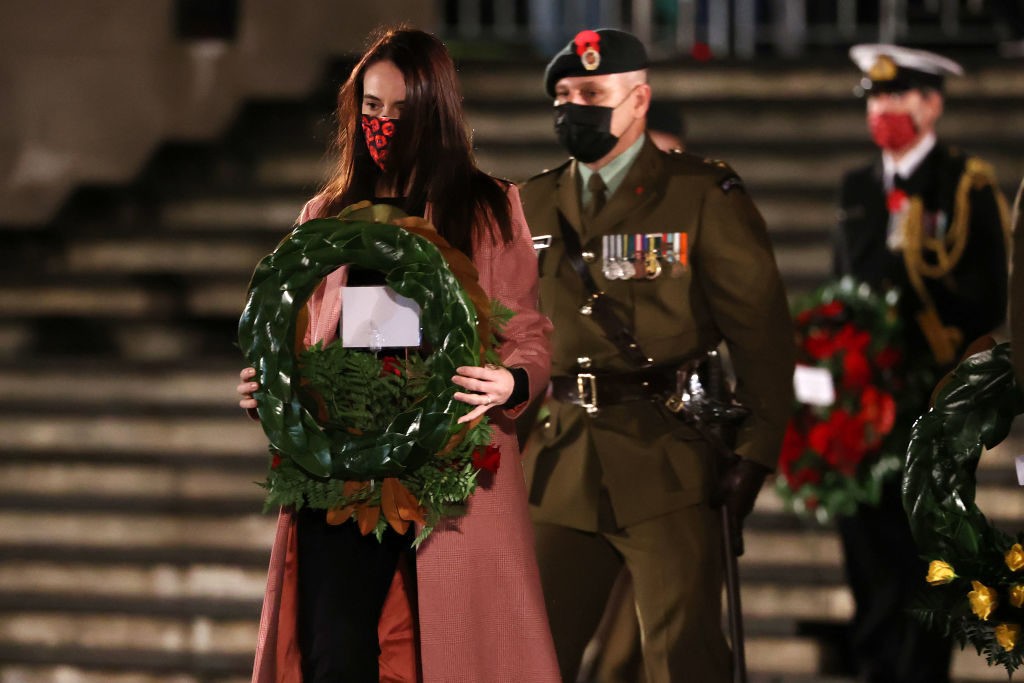
New Zealand Prime Minister Jacinda Ardern lays a wreath to commemorate Anzac Day during the dawn service at Auckland War Memorial Museum on April 25, 2022 in Auckland, New Zealand. (Fiona Goodall/Getty Images)
Earlier she attended a dawn service at Pukeahu National War Memorial Park in Wellington.
The annual commemoration precedes May 21 elections in Australia, where Morrison’s conservative coalition government is touting its defence credentials against the left wing opposition Australian Labor Party.
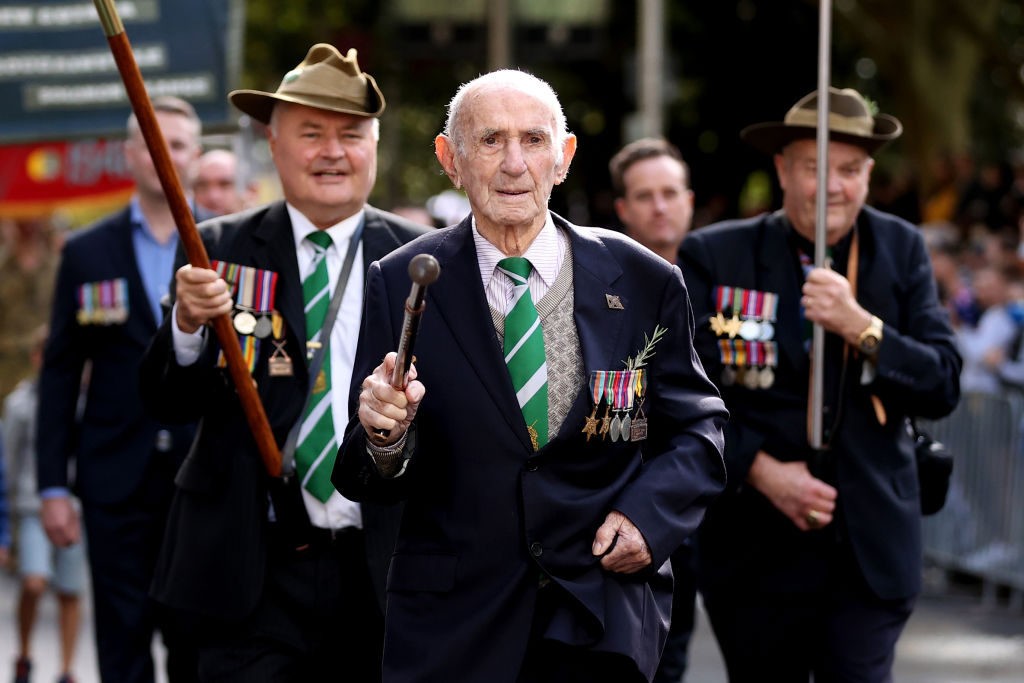
War veterans, defence personnel and war widows make their way down Elizabeth Street during the ANZAC Day parade on April 25, 2022 in Sydney, Australia. (Brendon Thorne/Getty Images)
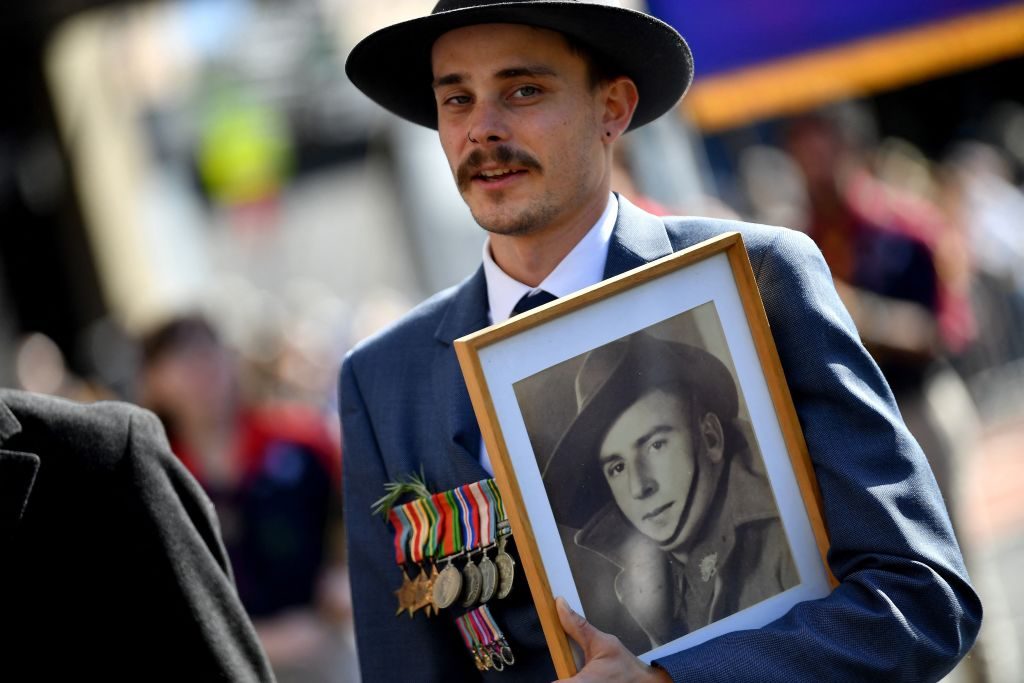
A man carries a photo of an Australian soldier in the annual ANZAC (Australian and New Zealand Army Corps) Day parade in Sydney on April 25, 2022. (SAEED KHAN/AFP via Getty Images)
“The only way that you can preserve peace is to prepare for war and to be strong as a country — not to cow and not to be on bended knee and be, you know, weak,” said Defence Minister Peter Dutton.
“Curling up in a ball, pretending nothing is happening, saying nothing: that is not going to be in our long-term interests,” he said in a television interview .
Dutton said the world was living in a period “very similar to the 1930s” with Russian President Vladimir Putin “willing to kill women and children” and China “through their actions, through their words, on a very deliberate course”.
China announced last week it had signed a security pact with the Solomon Islands, raising concern in Australia and the United States that it may give Beijing a military foothold in the South Pacific less than 2,000 kilometres (1,200 miles) from Australia’s coast.
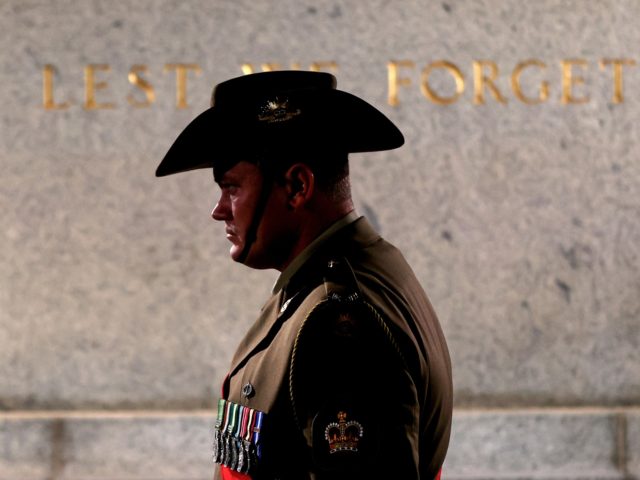
COMMENTS
Please let us know if you're having issues with commenting.